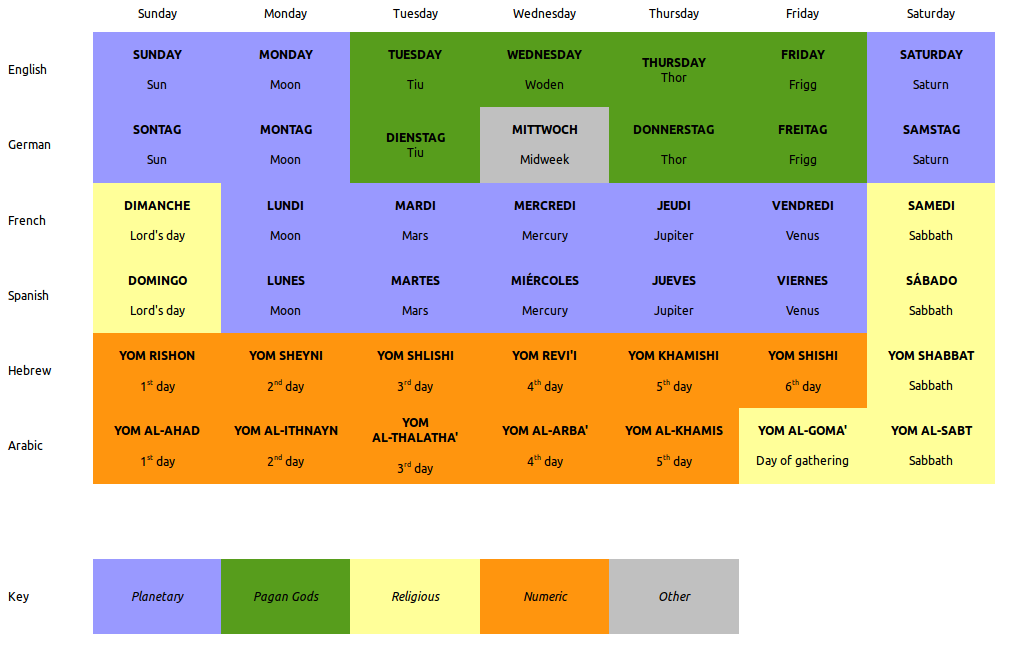Whenever I learn a new word in any language, I often find myself comparing that word with equivalent words in other languages. I was recently thinking about words for days of the week in various languages. For related languages, not only are there similarities in the words themselves, but the origins of those words also fall into a small number of distinct categories.
I chose three groups of related languages, partly for reasons of familiarity and interest, and partly to allow me to compare words within and across groups:
- English and German (Germanic)
- French and Spanish (Romance)
- Arabic and Hebrew (Semitic)
Interestingly, the origins of the words for days of the week can almost all be placed into the categories Planetary, Pagan Gods, Religious and Numeric. The following table lists the words for days of the week in each language together with their meaning or origin:

What struck me immediately is that this table is strongly reminiscent of the Periodic Table. This probably isn’t surprising considering that related languages have been placed adjacent to each other.
This Wikipedia page provides a more complete study of the origins of the words for days of the week (but without the colourful table).
Update
Mercury, Venus, Mars, Jupiter and Saturn have been known about since ancient times and were named after Roman gods. So many of the planetary days of the week were actually named after ancient gods, albeit indirectly. Thanks to M Stallman for pointing this out!
Perhaps it makes sense that the sun and moon being the most obvious celestial bodies lend their names to the first and second days of the week. But how were the remaining days assigned their planets?